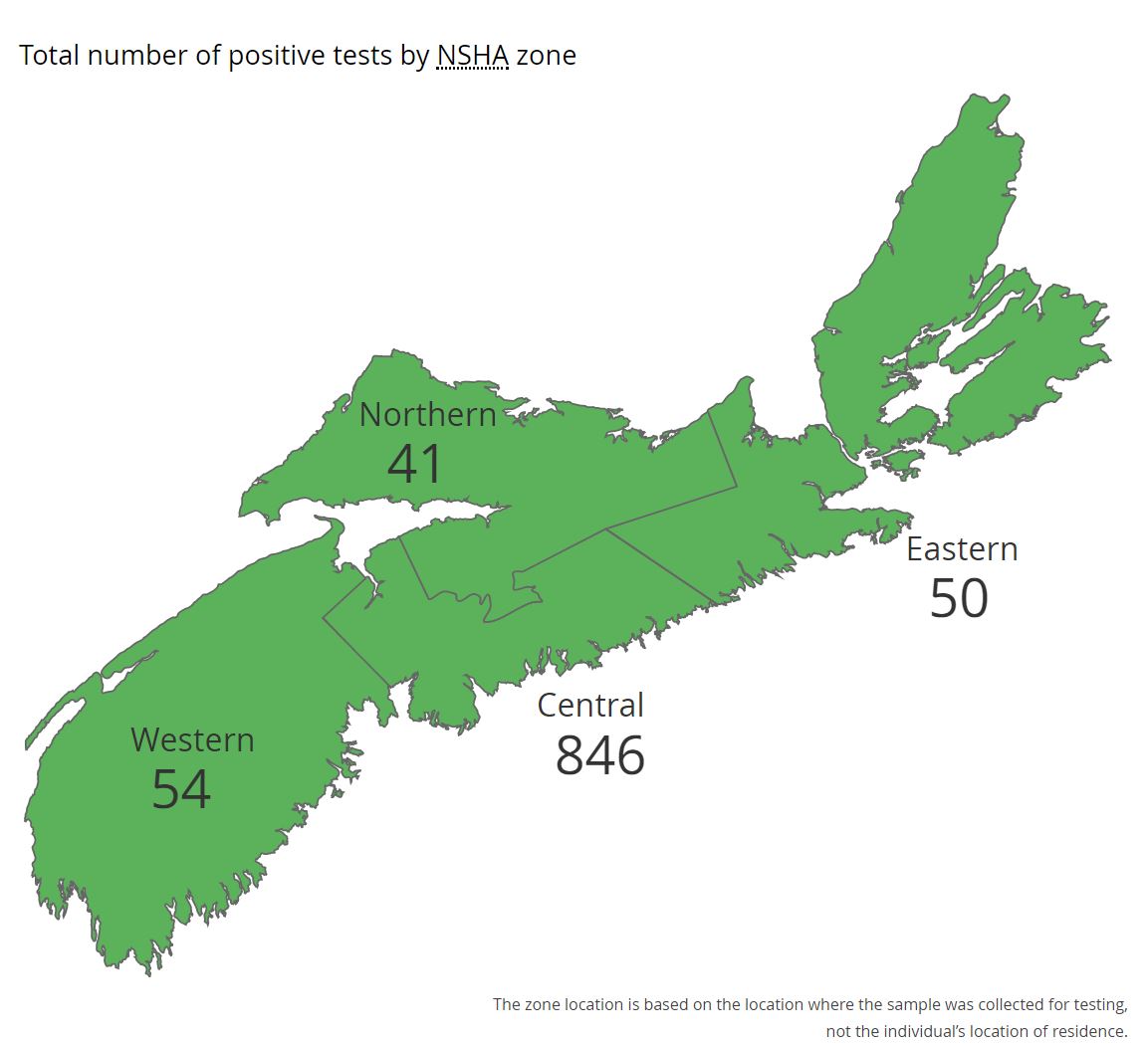Nova Scotia’s chief public health officer was on the defensive on Tuesday as the province announced three more deaths connected to the novel coronavirus at Northwood Manor, bringing the facility’s death toll to 35.

Speaking at an afternoon press briefing, Dr. Robert Strang said “all appropriate steps have been taken” to slow the outbreak Northwood has been faced with.
“I don’t want people to think that nothing was being done,” Strang said. “We were doing everything that was entirely possible to prevent and then respond to the outbreak.”
READ MORE: Nova Scotia confirms 1 new coronavirus-related death, 14 new cases
Strang again highlighted the uniqueness of Northwood, being the largest long-term care facility east of Montreal with almost 600 residents and 400 staff.
“Many of the residents there are very frail and elderly … making them very vulnerable to the virus,” Strang said. “Much of the Northwood building, because of the age that it was built, does consist of shared rooms which makes the ability for virus to be transmitted.
“That’s just a reality of the infrastructure that we have.”
He said with many of the 400 staff living in urban environments, it’s allowed for an increased opportunity for the virus to be introduced into the home.
“So all those conditions make Northwood somewhat unique in the Nova Scotia context.”

He noted that Northwood initially felt the outbreak could be managed, but 10 days after receiving its first cases “understood they were becoming overwhelmed” and reached out to the Department of Health and Wellness for help.
“There was an immediate response from the rest of the health system and across government to put in the necessary supports to be able to develop and implement the emergency plan that was necessary.”

Get weekly health news
165 active cases at Northwood
In an update on its website, Northwood announced the home has been faced with 226 confirmed cases of COVID-19.
Of the 226 total cases, 26 residents are in the recovery unit and 35 have died. That leaves 165 active cases within the home. That’s more than half of the province’s total number of active cases, which sits at 298 as of Tuesday.
The remainder are in the recovery process.
There have been 88 confirmed cases of the virus among staff at Northwood. Thirty-seven have since recovered, an increase of 12 from Monday.
During Tuesday’s briefing, Strang noted the success of containing the virus at other long-term care homes in the province.
Outside of Northwood, he said there are a total of 19 confirmed cases of the virus at Nova Scotia long-term care homes and four deaths.
“Northwood aside, we’ve had several outbreaks at long-term care facilities that we’ve been able to manage.”
McNeil deflects calls for inquiry
When pressed about whether the province would consider an inquiry into the COVID-19 deaths at Northwood, Premier Stephen McNeil declined to answer, only saying his focus is currently on containing the virus.
“We’re working very hard with Northwood, with unions across the province to ensure that we deal with COVID-19 in our province,” McNeil said.
“We’ll continue to focus on that.”
The Nova Scotia General Employees Union has been calling for an inquiry into deaths at Northwood, saying there are several questions left unanswered around whether employees were well-equipped with the proper protective equipment.
6 new cases in Nova Scotia
The province also announced an additional six cases of COVID-19 in the province, bringing the provincial total to 991. Of the 991 cases, 298 cases are active. There were 309 active cases on Monday.
READ MORE: Coronavirus — 6 more deaths at Northwood, 8 new cases confirmed in Nova Scotia
Here’s a breakdown of where cases have been identified in Nova Scotia by health zone:
- Central: 846
- Western: 54
- Northern: 41
- Eastern: 50
Sixty-one per cent of the cases involve female patients while 39 per cent are male.
The age group most impacted by COVID-19 in Nova Scotia is those between 40 and 59.
The QEII Health Sciences Centre’s microbiology lab completed 454 Nova Scotia tests on Monday.
Questions about COVID-19? Here are some things you need to know:
Health officials caution against all international travel. Returning travellers are legally obligated to self-isolate for 14 days, beginning March 26, in case they develop symptoms and to prevent spreading the virus to others. Some provinces and territories have also implemented additional recommendations or enforcement measures to ensure those returning to the area self-isolate.
Symptoms can include fever, cough and difficulty breathing — very similar to a cold or flu. Some people can develop a more severe illness. People most at risk of this include older adults and people with severe chronic medical conditions like heart, lung or kidney disease. If you develop symptoms, contact public health authorities.
To prevent the virus from spreading, experts recommend frequent handwashing and coughing into your sleeve. They also recommend minimizing contact with others, staying home as much as possible and maintaining a distance of two metres from other people if you go out.
For full COVID-19 coverage from Global News, click here.










Comments
Want to discuss? Please read our Commenting Policy first.